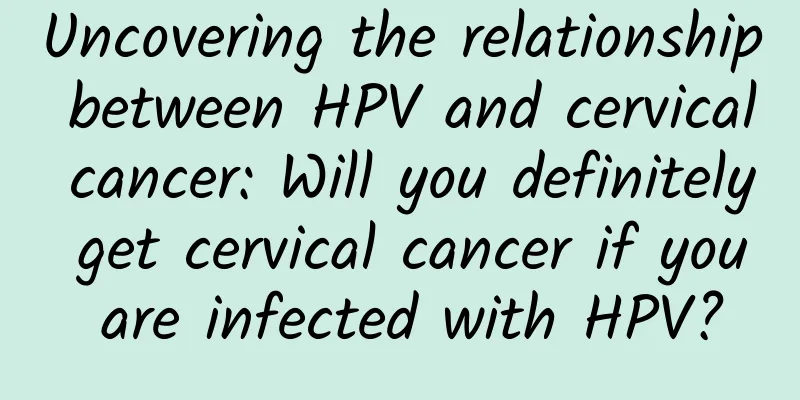Does “bad mood” really accelerate aging?! The degree of acceleration is 32% higher than smoking

|
"No disease or disaster, but premature aging." This is a self-mockery of many people. Although young, the heart is already old; although there are not many wrinkles, the hair is already white; although not fat, the bones are already brittle... This "premature aging" phenomenon is not only reflected in the physiological aspect, but also leaves a deep mark on the psychological and spiritual level. So, what is accelerating our aging? "No disease or disaster, but premature aging." This is a self-mockery of many people. Although young, the heart is already old; although there are not many wrinkles, the hair is already white; although not fat, the bones are already brittle... This "premature aging" phenomenon is not only reflected in the physiological aspect, but also leaves a deep mark on the psychological and spiritual level. So, what is accelerating our aging? Copyright images in the gallery. Reprinting and using them may lead to copyright disputes. It's not just time that makes people age, but also emotions! If you find yourself: young but suffering from severe hair loss; not staying up late often but feeling exhausted; eating very little but still carrying weight; living a healthy life but often failing to maintain good health; paying attention to anti-aging and health preservation but feeling the signs of aging becoming more and more obvious... then at this moment, you should be alert, because it may not be the years that are ruthlessly making you grow old, but the "junk emotions" that are causing trouble! A study found that negative emotions can accelerate the aging of the body, even 32% more harmful than smoking. Next, let's take a look at how emotions affect aging. 1. Emotions are energy, but they can also hurt people Emotion is an important indicator of mental health and the most direct and immediate reflection of people's mental health. We often simply and crudely classify emotions into two categories, such as positive emotions, negative emotions or positive emotions, negative emotions. However, this classification can easily lead to misunderstandings, that is, negative emotions are bad and will damage health, so they should be avoided or suppressed as much as possible. In fact, emotions are a signal that reminds you of what you want, what you need, what you have lost, and what you have; emotions are also a kind of energy that can drive you to seek, pursue, and achieve, and can also protect you from threats and dangers in time. Just like anger, when facing unreasonable people, it may make you lose your mind and speak without restraint; however, when facing the threat of thugs, it can also become your inner motivation, allowing you to unleash your potential and bravely resist. In general, both positive and negative emotions have signaling, functionality, adaptability, and motivational characteristics, helping us to react and make decisions in different situations. However, compared with positive emotions, negative emotions are more likely to lead to negative consequences and problematic behaviors, which in turn harm the body and the heart. Therefore, most people try to avoid "negative emotions", but often feel powerless to deal with them. Although short-term negative emotions can be destructive in an instant, for example, studies have shown that even if we are angry for only a few minutes, it can temporarily change the function of our blood vessels, thereby increasing the risk of heart disease and stroke. However, we must understand that the human body is resilient. As long as we give it enough time to recover, our physical and mental states can gradually return to normal, and physical and psychological trauma will heal. In fact, this view has been supported by scientific research. In 2009, a survey of 513,000 urban white-collar elites jointly conducted by five major institutions including the Chinese Medical Doctor Association, the Chinese Hospital Association, and the Beijing Health Insurance Association found that the aging phenomenon caused by short-term stress is not irreversible. When an individual recovers or adapts from stress, his or her biological age can gradually reverse and return to the original level. Copyright images in the gallery. Reprinting and using them may lead to copyright disputes. 2. “Emotional inertia” is the real culprit of aging Although the damage caused by short-term negative emotions can be repaired, long-term negative emotions can destroy the body's functions, causing the vitality that should have been vigorous to shrink or even disappear quickly. According to research statistics, we have about 65,000 thoughts every day, so it is inevitable that we will have some bad thoughts. When there are thoughts, there will be emotions, so it is reasonable to have negative emotions. However, when negative emotions persist and linger, they will emit toxicity and backfire on the body and mind. Just like watering plants is to replenish moisture and promote growth, but if the soil is always moist, the roots will rot, eventually causing the entire plant to become sick and rot. This persistent and difficult-to-reverse state of negative emotions is called "emotional inertia" in psychology. Neuroscience research shows that the ability to quickly reverse emotions may help prevent pathological brain aging. In life, most people face various pressures and challenges. Chronic stress that makes it difficult for people to breathe is like an invisible shackle that continuously creates negative emotions. Even if one has a strong ability to regulate emotions, or a strong physical fitness and immunity, it is inevitable that one will occasionally be unable to withstand the emotional impact that comes at one’s face, and thus become addicted to the vortex of negative emotions, leaving oneself with insufficient time to breathe and the body unable to get the necessary repair space. Therefore, what really harms the body and the heart and accelerates aging is not the negative emotions themselves, but the fact that negative emotions are so prevalent and difficult to get rid of. They accumulate in the body like toxins, forming chronic toxicity, quietly eroding the activity of cells and thus accelerating the aging process of the individual. Anti-aging emotions hope + safety + happiness A research paper published in Aging, an authoritative journal focusing on aging research, clearly pointed out that when people face multiple mental health problems at the same time, such as worry, lack of concentration, depression, loss of hope, fear, poor sleep quality, sadness, loneliness, etc., their physiological age will be significantly accelerated, by nearly 1.65 years, which is even more than smoking (smoking usually causes physiological age to accelerate by about 1.25 years). It seems that negative emotions are 32% more harmful than smoking. Among them, the following three emotional states, if they exist for a long time, will become "junk emotions" and have a greater impact on aging: 1. Losing hope makes you age 0.28 years In psychology, hope is regarded as a vital positive psychological resource, which has a significant positive effect on people's coping with stress, frustration and difficulties in life. When individuals feel hopeful, they tend to face problems more proactively and are more likely to take action to solve difficulties rather than escape or procrastinate. This positive mentality makes it easier for them to recover and regain their spirits when they encounter failure, and continue to pursue their goals and dreams firmly. In other words, a person who is full of hope for life, the future, and themselves is often able to manage their emotions better and quickly get rid of negative emotions caused by setbacks and difficulties. They have lower emotional inertia, which means that they will not be trapped in negative emotions for a long time, but will be able to adjust their mentality faster and return to a positive state. This strong recovery ability makes them more resilient in the face of life challenges and more likely to achieve their goals and dreams. 2. "Frequent fear" makes you age 0.29 years Fear instantly activates the "fight or flight" response in the brain, which is the body's natural physiological defense mechanism when facing stress or danger. In this state, the body will send more blood to the muscles, increasing muscle strength and reaction speed, while improving cardiovascular and lung function, accelerating the heartbeat and deepening breathing to ensure that the body gets enough oxygen and energy. Nutrients will also be concentrated in the liver to quickly release energy substances to provide immediate energy support for the body. However, at the same time, this emergency response will also lead to adjustments in the functions of other body systems, especially a significant decline in gastrointestinal function. If fear persists, the brain's "fight or flight" response will continue to be activated, keeping the body in a state of high alert and high-speed operation for a long time, like a car with the accelerator pedal pressed to the bottom but the wheels spinning, which results in a large consumption of energy and wear and tear of functions. 3. “Rarely happy” makes you age 0.35 years Happiness is a positive emotional experience that can bring us a sense of pleasure, satisfaction and peace. Positive and negative emotions are not mutually exclusive, but can coexist and influence each other. Although we sometimes inevitably experience negative emotions, such as sadness, anger, anxiety, etc., the power of positive emotions lies in that they can help us better cope with negative emotions, reduce their destructive power, and improve our overall sense of well-being. The research of psychologists Fredrickson and Losada provides us with an important reference standard: when the ratio of positive emotions to negative emotions is greater than 3:1, individuals are more likely to experience a flourishing experience, that is, a state of life in which happiness is flourishing. At the same time, longitudinal studies have also shown that there is a close relationship between happiness and aging and life expectancy. Psychological well-being is negatively correlated with mortality, which means that people with higher happiness are more likely to have a longer life. This finding applies not only to healthy people, but also to sick people. Support + good sleep + reading are the three major anti-aging agents Emotional stability is a powerful anti-aging agent that helps maintain a good mental state and slow down aging. Emotional stability here does not mean no emotional ups and downs, no extreme joy or sorrow, but the ability to quickly break through the shackles of emotional inertia. However, even people with high emotional intelligence can't avoid emotional instability, so looking for compensation in other aspects is also a good way to deal with the problem. 1. “Having someone support you” makes you 0.59 years younger The study showed that the three major factors that significantly affect the speed of aging are smoking (+1.25 years), marital status, and sleep quality. Among them, in terms of marital status, currently married participants showed a slower aging speed compared to participants who had never been married, about 0.59 years younger. On the contrary, widowed participants showed a faster aging speed, 0.3 years older than married people. The researchers interpreted these findings as the importance of "support" in the aging process of individuals. They pointed out that both instrumental support and emotional support provided by partners and children can significantly improve people's life satisfaction and happiness. This support helps to reduce life stress and promote physical and mental health, thereby reducing the rate of aging. Therefore, a good marital relationship and family environment are of great significance in delaying aging and maintaining a healthy state. 2. “A good night’s sleep” makes you 0.44 years younger I believe that most people understand that good sleep is essential for restoring energy, stabilizing emotions, and maintaining physical health. However, many people may not fully realize the seriousness of the fact that "poor sleep accelerates aging." Studies have shown that the impact of sleep quality on the speed of aging cannot be ignored. Compared with people with poor sleep, people with good sleep usually show a slower aging speed and may appear nearly 0.44 years younger. This is because good sleep habits can promote physical recovery, reduce stress, and improve immunity. On the contrary, people with poor sleep quality for a long time may have a variety of health problems, such as memory loss and mood swings, which may accelerate the aging process. 3. “Read more good books” to keep you young There is a popular saying now, which is "To see whether a person is old or not, you cannot look at his birth age, but the length of his telomeres!" Telomeres, this tiny structure, is crucial to understanding our aging process. If we imagine chromosomes as shoelaces, then telomeres are like the plastic caps of shoelaces, protecting them from wear and tear. Each time a cell divides, the telomeres shorten a little. When the telomeres shorten to a certain extent, their protective effect on chromosomes disappears, chromosomes cannot replicate normally, cells cannot continue to divide, and eventually die. Therefore, it can be said that "telomeres" determine our aging to some extent. However, the good news is that the rate of telomere shortening is not completely uncontrollable. Scientists point out that telomere length can even be increased through physical and mental adjustments. More and more studies have found that education level has a significant impact on telomeres. The higher the education level, the slower the telomere shortening rate. The "education level" here does not only refer to the level of education, but also the extensive pursuit and understanding of knowledge and learning. In fact, this effect may be closely related to our lifestyle and way of thinking. Cognitive neuroscience research has also found that reading more books can slow down the aging and death of brain neurons. When we immerse ourselves in the ocean of knowledge, our brains are constantly stimulated and challenged, which helps maintain the activity and vitality of neurons. Therefore, we can reasonably speculate that "reading more good books" may be one of the most effective ways for us to resist aging. Conclusion Some people may think that time flies by in the blink of an eye, and aging in a year or two is just a brief moment in the long river of life. With such a broad mind and mentality, it may be possible to make up for the gap and prolong life. However, it should be noted that people with a good mental state are rarely tripped up by troubles, so they naturally don’t need to care about wrinkles around their mouths and graying temples; however, people with a poor mental state may fall into a completely different dilemma. Some studies have shown that the connection between physical aging and psychology is not one-way. People with poor mental state will age faster, and people who age faster are more likely to have psychological problems in their later years. Half a year plus half a year, a small number, is not noticeable, but it is very harmful when added together. The relationship between mental state and aging speed forms a negative vortex that will ruthlessly engulf us and make it difficult for us to escape. As the most intuitive and important indicator of psychological state, emotion has an undeniable impact on the aging process of our body. However, we should realize that negative emotions are not terrible and difficult to avoid. What is really fatal is to indulge in negative emotions. Therefore, improving the ability to regulate emotions and reducing emotional inertia can effectively resist aging and maintain youth. In short, delaying aging is inseparable from a positive attitude, and the best medical beauty is to maintain happiness. Planning and production Author: Su Jing, National Level 2 Psychological Counselor Reviewer: Zhang Xin, Associate Professor, School of Psychology and Cognitive Science, Peking University Planning丨Zhong Yanping Editor: Zhong Yanping Proofread by Xu Lailinlin |
<<: Why is a half marathon more dangerous than a full marathon?
>>: How to read Alzheimer's blood test results
Recommend
How many days after menstruation can I test for pregnancy
There are currently two ways to detect pregnancy:...
How to care for bronchiectasis and hemoptysis
Bronchiectasis is a chronic progressive respirato...
What medicine can I take to discharge pelvic congestion?
If you know something about the pelvic cavity, yo...
Should pepper and aniseed be added to stewed crucian carp? What seasonings should not be added to stewed crucian carp?
We all know that crucian carp soup is a common ty...
Can I have an abortion at 2 months?
Before choosing to have an abortion, women must u...
Does leucorrhea come from the uterus?
Women’s menstrual period is what we call menstrua...
Girls abdominal pain
If a girl has persistent abdominal pain, it is no...
What are the benefits of wheat germ for pregnant women?
Wheat germ is rich in vitamin E, which is a vitam...
WeChat’s monthly active accounts reached 938 million in 1Q17, while QQ’s number declined year-on-year
According to the data disclosed by Tencent in the...
How to choose fish balls? What fish to use to make fish balls
Taiwan fish balls have formed their own character...
Why do I have stomach pain on the third day after abortion?
Painless abortion surgery can easily scratch our ...
How to massage a maternal breast if it has a lump
Can you rub the lumps in your breasts due to mast...
What are the symptoms of uterine cold?
If women need to protect their health, they need ...
How many types of ovarian cysts are there?
The ovary is one of the important organs in the f...
What is the cause of lower abdominal pain and excessive leucorrhea?
Women sometimes experience lower abdominal pain a...









